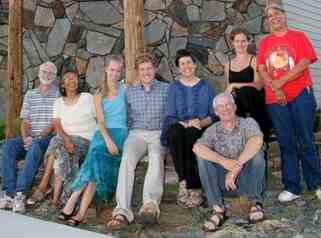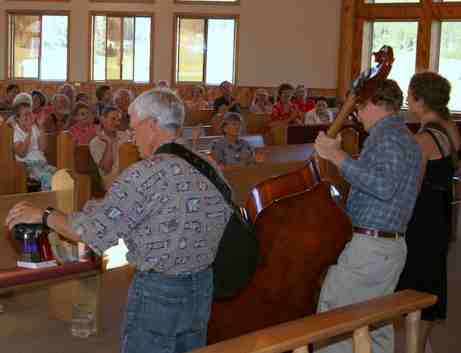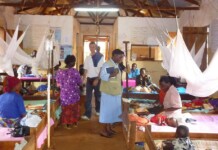 (Custer, South Dakota) While some South Dakota whites will always be bitter about the modern Wounded Knee standoff three decades ago, a Native American national newspaper reporter says a recent benefit concert symbolized the recent healing of race relations between the Lakota people and their neighbors.
(Custer, South Dakota) While some South Dakota whites will always be bitter about the modern Wounded Knee standoff three decades ago, a Native American national newspaper reporter says a recent benefit concert symbolized the recent healing of race relations between the Lakota people and their neighbors.
Michigan and South Dakota musicians performed at an August 12 concert to raise money for the country’s first and oldest Native American domestic violence shelter, on the Lakota Rosebud Reservation. The event also marked another step toward healing racial tension between whites and Native Americans.
Native American reporter Dave Melmer said the concert was the first non-political event to ever bring racial healing between whites and Native Americans in Custer — where racism by some whites is generations old.
In fact, a Custer County historical marker still stands proclaiming “whites were massacred by Sioux Indians on this spot,” Melmer said.
South Dakota is “notoriously bad when it comes to race relations,” says Melmer, a reporter for Indian Country Today who lives in Custer. “There are white people in South Dakota who have never been on a reservation and would be afraid to go.”
 (Northern Michigan folk band White Water performs at Custer Lutheran fellowship Church in SD to benefit the White Buffalo Calf Woman Society, left to right are Dean Premo and his adult children, Evan and Laurel Premo, from Amasa, Mich., who have been performing as a family string band for 20 years — Photo by Javier H. Alegree)
(Northern Michigan folk band White Water performs at Custer Lutheran fellowship Church in SD to benefit the White Buffalo Calf Woman Society, left to right are Dean Premo and his adult children, Evan and Laurel Premo, from Amasa, Mich., who have been performing as a family string band for 20 years — Photo by Javier H. Alegree)
Custer Lutheran Church Pastor Dave Van Kley said his church, which hosted the benefit concert, has reached out to Native Americans for more than a decade on the Pine Ridge reservations with their Lakota ministry.
Melmer said the concert was “a courageous effort on their part.”
Van Kley described the relationship with the tribe as “warm and gracious” adding that the Custer High School basketball team has participated in the Lakota Nation Invitational Basketball Tournament for many years.
According to Melmer, the Lakota basketball tournament is more than athletics — it’s a cultural event, a celebration of native identity. Now there are several white schools participating, but in the early days the only non-Indian school was Custer.
Racism was intensified locally, Melmer says, when the county courthouse was partially burned in 1973, in the days just prior to the infamous Wounded Knee standoff between the American Indian Movement and federal agents that left two Native Americans dead and two officers wounded. Custer is about 112 miles from Wounded Knee.
“The concert was a big small step in improving race relations because it could lead to more of these kind of things,” Melmer said. “The impact probably was felt by both sides — the Indian and white communities — and through these efforts there is a chance to bring these communities back together.”
South Dakota residents and Black Hills visitors alike opened their hearts and wallets during the free concert and raised about $1,000 for the White Buffalo Calf Woman Society in Mission, S.D. The funds will be used for preventing domestic violence, sexual assault and teen suicide. The current executive director Tillie Black Bear said, “The connection between Custer and the Rosebud reservation is once again open and strong.”
Greg Peterson is the Turtle Island Project volunteer media advisor. The Michigan Turtle Island Project and its founder Rev. Lynn Hubbard, a pastor, are friends of the Lakota tribe and the Custer church. The Turtle Island Project promotes respect for the environment and the Native American culture.




















At Moments like this I wish I was living in West River! (western side of S. Dakota!) instead of living along the eastern boarder. I pray more projects will continue in our state to help those who are divided by racism, so that we can all come to realize we are ONE race — Human.